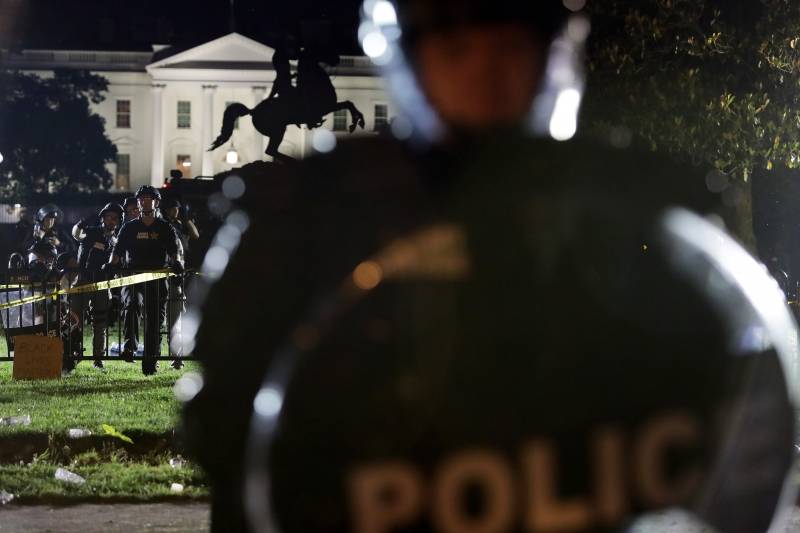The anguishing cell phone video of George Floyd’s murder, captured by teenager Darnella Frazier, lay at the heart of the prosecution’s case against the former police officer convicted of his killing. Bystander videos can provide important counter-narratives to official accounts, and the very act of filming law enforcement officers can sometimes de-escalate violent confrontations. But once widely circulated, videos documenting police misconduct can be deeply disturbing to communities already traumatized by violence. We’ll talk about how to film police encounters safely, effectively and ethically.
How to Exercise Your Right to Film the Police
32:52

Members of the U.S. Secret Service hold a perimeter near the White House as demonstrators gather to protest the killing of George Floyd on May 30, 2020 in Washington, DC. Former Minneapolis police officer Derek Chauvin was arrested for Floyd's death and is accused of kneeling on Floyd's neck as he pleaded with him about not being able to breathe. Floyd was pronounced dead a short while later. Chauvin and three other officers, who were involved in the arrest, were fired from the police department after a video of the arrest was circulated. (Alex Wong/Getty Images)
Guests:
Brendesha Tynes, professor of education and psychology, USC Rossier School of Education
Geoffrey Fowler, technology columnist, Washington Post; His recent column is called "You have the right to film police. Here’s how to do it effectively — and safely."<br />
Sponsored